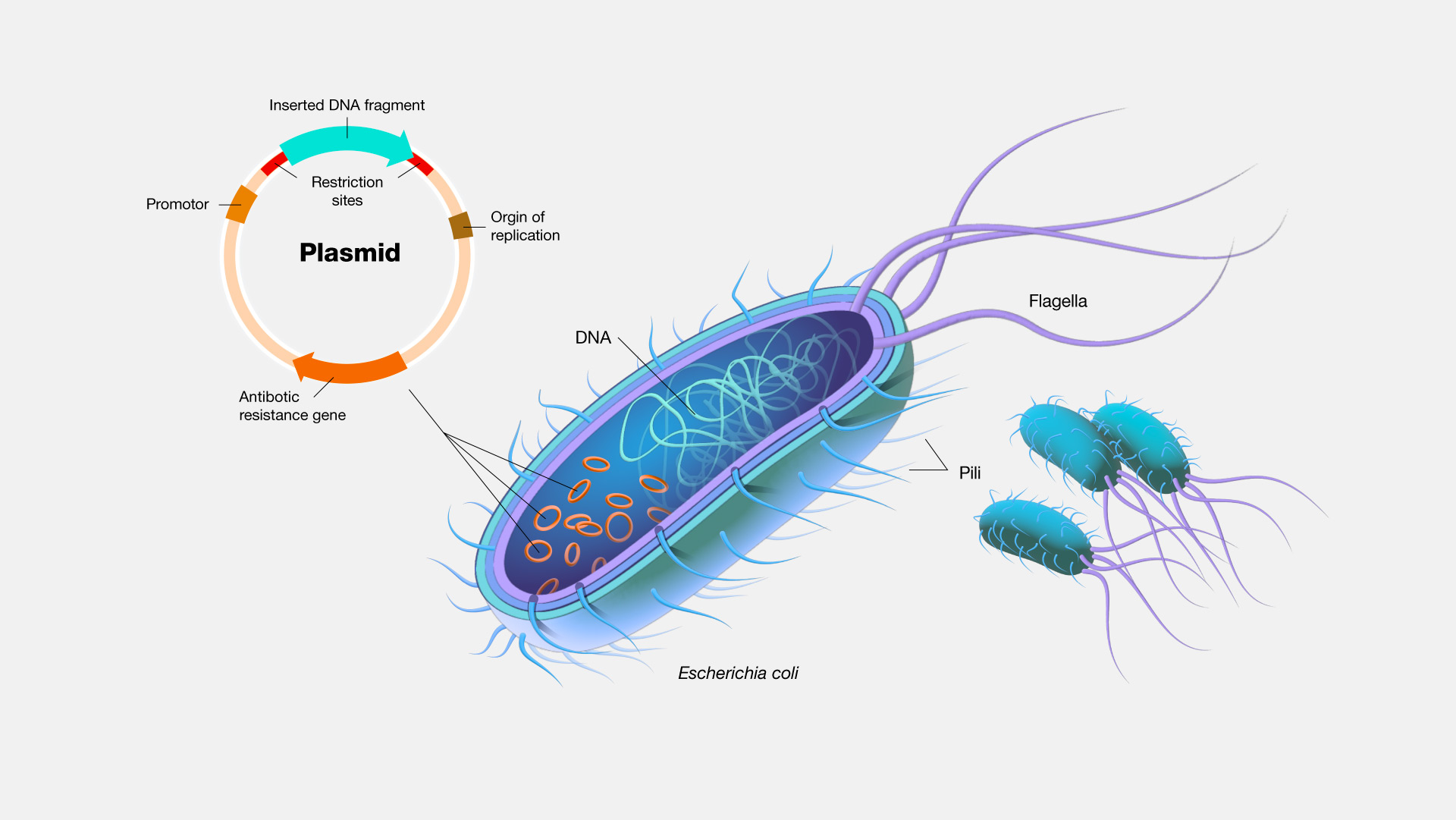genomic plasmids
Plasmids play several crucial roles in genomic studies:
Cloning of DNA Fragments:
Plasmids are commonly used as vectors for cloning DNA fragments, including genomic DNA. Researchers can insert specific genomic DNA fragments into plasmids using restriction enzymes and DNA ligase, creating recombinant plasmids that can be propagated and studied further.
Genomic Libraries:
Plasmids are instrumental in constructing genomic libraries, which are collections of DNA fragments representing the entire genome of an organism. Genomic libraries allow researchers to study specific genes or genomic regions of interest, screen for gene mutations, or identify regulatory elements.
Gene Expression Studies:
Plasmids are used to study gene expression by serving as vectors for the expression of genes of interest. In genomic studies, researchers may clone genomic DNA fragments containing genes into expression vectors. These vectors typically contain regulatory elements such as promoters and enhancers that drive gene expression in host cells. By introducing these plasmids into cells, researchers can analyze the expression patterns and functions of genomic sequences under different conditions.
Mutagenesis and Gene Editing:
Plasmids are widely used in mutagenesis and gene editing studies. Techniques such as site-directed mutagenesis, insertional mutagenesis, and CRISPR-Cas9-mediated genome editing often involve the use of plasmids as delivery vehicles for introducing specific genetic modifications into the genome.
Functional Genomics:
Plasmids play a crucial role in functional genomics studies aimed at understanding the function of genes and regulatory elements within the genome. By manipulating gene expression or introducing reporter constructs into cells or organisms using plasmids, researchers can investigate the effects of gene perturbations on cellular processes, pathways, and phenotypes.
Transgenic Model Systems:
Plasmids are used to generate transgenic model systems, such as transgenic animals or plants, for studying gene function and regulation in vivo. Plasmids containing genomic DNA fragments of interest, along with regulatory elements, can be introduced into the germline of organisms to create transgenic lines expressing the gene(s) of interest.

There are no products listed under this category.
